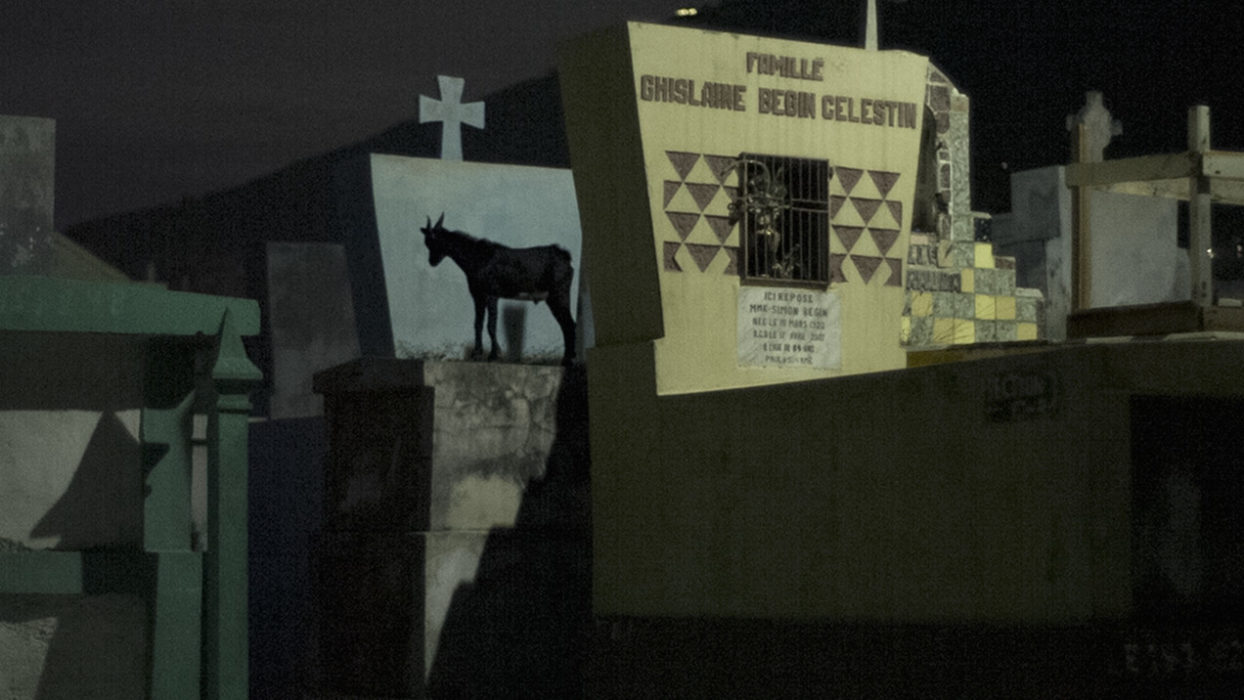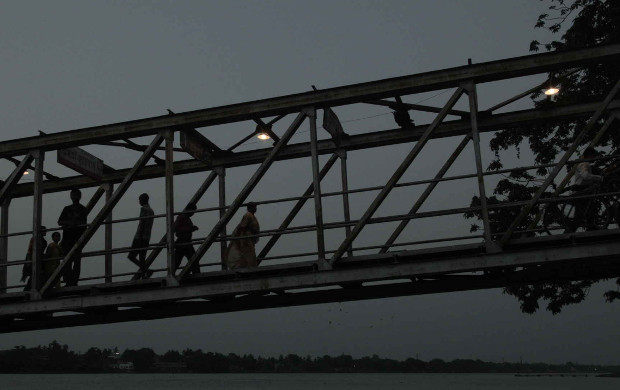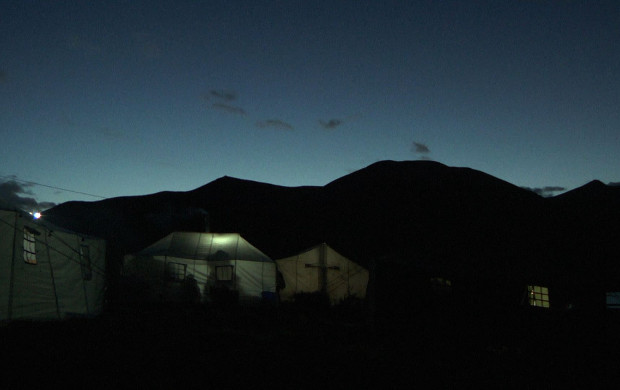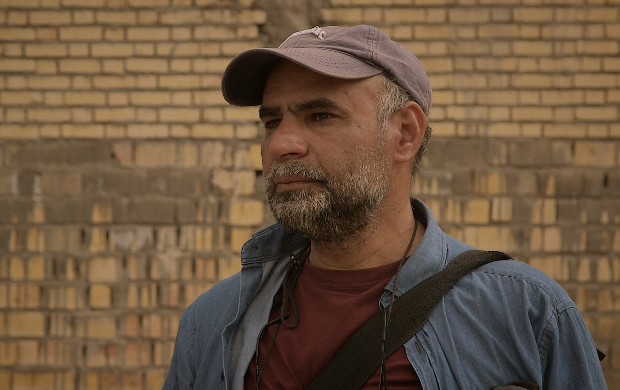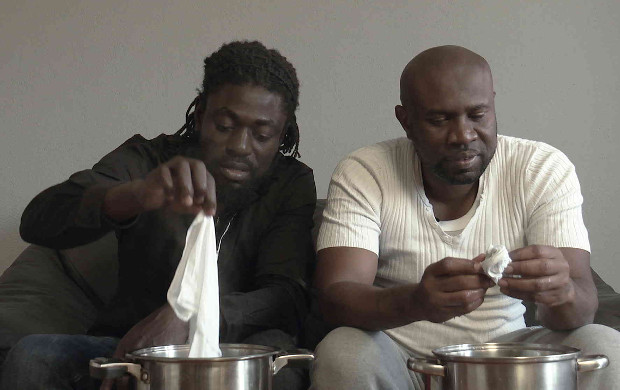Whipping Zombie
- 2017
- Italy
- 30 minutes
- Créole Haitien
An intermingling of dance and reactivated memories of slavery, as the violence of the Haitian kale zonbi (“whipping zombie”) ritual is filmed for the very first time.
In a remote Haitian village, a ritual ceremony is filmed for the first time: the kale zonbi (“whipping zombie”). Through bodies dead with exhaustion then symbolically reborn, dance, music and trance seem to act out a distant memory of slavery with extraordinary violence. But Yuri Ancarani sets this ethnographic document within two other segments that, like the ritual, are stretched between toil and death: the splendid general view of a cemetery where goats prance from grave to grave, while elsewhere, probably far away, another dance is in full swing. A man explains in voice-over what the zombie represents in the voodoo tradition. “As I have whipped someone, I know when I die, someone will take me.” The other film segment shows the highly strenuous and artistic work of fer découpé (metal sculpture), a typical Haitian craft that uses recycled steel drums as its raw material. The editing weaves together tightly the hammering of chisels and the lashing of whips, hammerers and whippers, the harnessing of craftsmanship and the unharnessing of possession. The ethnographic film slides elegantly towards a purely rhythmic recreation of an energy driven by the marginalisation of a people. (Charlotte Garson)
- Production : Marco Alessi; Chloè Mukai; Simone Cipriani
- Distribution : Manuela Buono
- Editing : Yuri Ancarani; Matteo Pit
- Sound : Mirco Mencacci
- Photography : Yuri Ancarani
- Music : Matteo Pit
